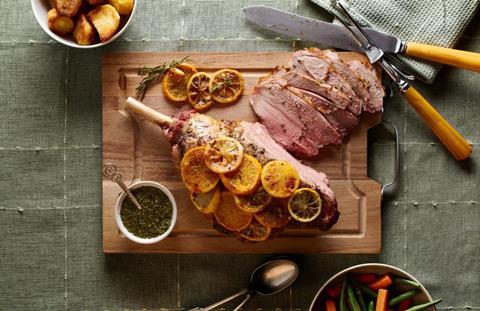New market data from Kantar shows barbecue sales were down in the month of July as a result of unseasonable weather, while roasting joint sales grew by 5%.

According to Kantar, grocery price inflation has fallen again and now stands at 12.7% for the four weeks to 6th August 2023. Overall take-home grocery sales increased by 6.5% over the same period, down from 10.4% last month.
Fraser McKevitt, head of retail and consumer insights at Kantar, commented: “It was a better month for Barbie than barbecues this July as the rain put a spanner in the works for many consumers’ outdoor plans – a stark comparison to last year when we experienced the hottest day on record.
“Instead of our usual summer fare, it seems we’ve been turning to more traditional winter warmers. The amount of soup bought has gone up by 16% year on year, while roasting joints have grown by 5%. Cooler temperatures and a wetter than average month may have also put people off from venturing to the shops. Footfall was down for the first time in 18 months with people making 320,000 fewer trips to physical supermarkets than a year ago.”
Supermarket price increases slow
McKevitt said: “The latest slowdown in price rises is the second sharpest monthly fall since we started monitoring grocery inflation in this way back in 2008. Prices are still up year on year across every supermarket shelf, but consumers will have been relieved to see the cost of some staple goods starting to edge down compared with earlier in 2023. Shoppers paid £1.50 for four pints of milk last month, down from £1.69 in March, while the average cost of a litre of sunflower oil is now £2.19, 22 pence less than in the spring.”
Own-brand products were popular in the latest four week period, with sales up by 9.7%. Branded product sales role by 6.4%.
McKevitt continued: “Own-label sales continue to outpace branded, although the gap between the two is closing. Buying supermarket lines is just one of the ways people have been trying to save money at the tills and we can see the impact on how much they are spending. The average increase in households’ weekly grocery shop is £5.13 compared with last year, well below the £11.27 extra they would have paid if consumers had bought exactly the same items as 12 months ago based on the current rate of inflation.”
"The latest slowdown in price rises is the second sharpest monthly fall since we started monitoring grocery inflation in this way back in 2008."
Fraser McKevitt
Over the 12 weeks to 6th August, both Tesco and Sainsbury's outperformed the market this month, fuelled by sales growth of 9.5% and 9.3% respectively. Tesco's market share was 27%, while Sainsbury's held 14.8% of the market. Asda sales were up by 7.7%, accounting for 13.7% of the market as Morrisons confirmed an 8.7% share as sales grew 2.3% year on year.
For the fourth month in a row, Aldi held its title as the fastest growing retailer, with sales increasing 21.2% year on year. It now has a market share of 10.2%, a 1.1% rise from 2022. Lidl's sales rose 19.8%, placing it at 7.7% of the market.
Waitrose and Co-op sales rose by 4.4% and 3.4%, with the retailers holding market shares of 4.4% and 6.1% respectively. Iceland held 2.3% of the market with sales increasing by 6.7%, while Ocado's share is now at 1.7% after sales grew by 1.4%.
This story was originally published on a previous version of the Meat Management website and so there may be some missing images and formatting issues.












